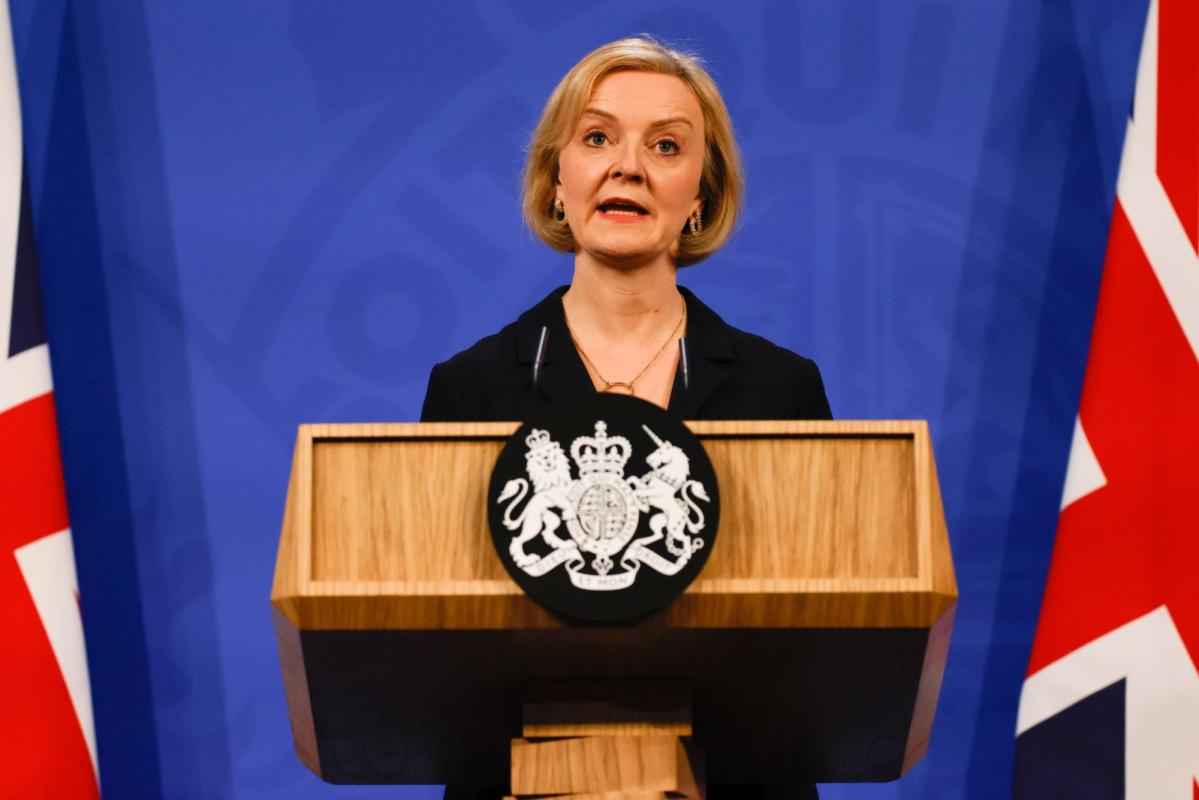
(Bloomberg) — Embattled UK Prime Minister Liz Truss faces a brewing parliamentary rebellion if she is forced to abandon a key Conservative manifesto commitment on pensions as part of a frantic austerity drive.
Most Read from Bloomberg
Chancellor of the Exchequer Jeremy Hunt has refused to guarantee that he will stick to the Tories’ election pledge to raise the state pension in line with the highest of either inflation, wages or 2.5% — known as the “triple lock.”
New statistics released Wednesday highlighted the problem for Hunt. If benefits and pensions are increased in line with September’s 10.1% reading, the government’s total bill would increase by more than £25 billion ($28 billion) next year, according to calculations based on Office for Budget Responsibility data. The hit is £6.2 billion higher than the OBR expected in March.
The uncertainty on pensions comes as government departments were told by the Treasury to find savings of up to 15% of their budgets, with no options considered off the table, in what is effectively a return to austerity.
It poses a new political problem for Truss and Hunt, with many Tory members of Parliament representing large numbers of older constituents who typically form their core voter base. A commitment to the triple lock was also in the party’s 2019 election manifesto, regarded as binding on the administration
‘Concerning’ Data
“We do take manifesto commitments incredibly seriously as you know,” Foreign Secretary James Cleverly told Sky News on Wednesday. He said the inflation figures are “concerning” but refused to commit to the triple lock ahead of Hunt’s planned statement to Parliament on Oct. 31.
On Tuesday night, Tory MPs Maria Caulfield and Steve Double went public to say they would not vote for an end to the triple lock.
The Treasury also refused to deny that it is considering raiding the profits of banks and energy companies as it seeks to fill its funding black hole.
The Financial Times reported Hunt was considering a potential 33% effective tax rate for banks, made up of the new 25% corporation tax rate coming in next April, and an 8% surcharge. Currently banks pay an effective tax rate of 27% on their profits.
A Treasury spokesperson said: “We can’t comment on specific speculation, however the chancellor and PM have been clear that difficult decisions will be required to restore economic stability, and no options are off the table.”
EU Laws
Truss held a private meeting with members on the pro-Brexit right-wing of her party late Tuesday as she sought to steady the ship following a desperate start to the week that saw Tory MPs openly plot her downfall.
In an attempt to solidify her position among hardline Brexiteers, the prime minister told the room she was committed to her existing policy on the Northern Ireland Protocol and recommitted to taking all EU law off the UK statute book by the end of next year, her deputy press secretary told reporters.
Truss faces a bruising encounter with Labour leader Keir Starmer at prime minister’s questions later on Wednesday, where the Tory backbenchers who can ultimately decide her fate will be watching closely.
The executive of the 1922 committee, which controls the rules that govern the Tory leadership process, meets Wednesday afternoon.
Hunt is set to address the 1922 Committee of rank and file Tory MPs at 5pm, according to a person familiar with the matter.
(Adds impact of inflation figures on pensions in third paragraph)
Most Read from Bloomberg Businessweek
©2022 Bloomberg L.P.



